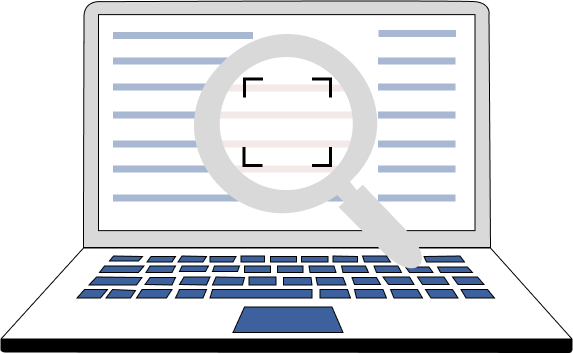All data capture solutions and solution providers are not created equal, but what are the key ways that great solutions and providers set themselves apart? Capturing data accurately and capturing the right data are both essential aspects of effective data collection and management, but they refer to slightly different concepts that will have a major impact on the results and ROI of your data capture solution. In this blog, we will discuss the crucial differences between capturing data accurately and capturing the right data:
Capturing Accurately vs. Capturing the Right Data
Accurate Data Capture
- Capturing data accurately involves ensuring that the data collected is free from errors, omissions, or inconsistencies. Accurate data capture aims to minimize mistakes during the data collection process, such as typos, misinterpretations, or technical issues.
- Accurate data capture often focuses on precision, consistency, and reliability in the data collection methods and tools employed. This may involve using well-defined data entry procedures, validation checks, and data cleaning processes to eliminate inaccuracies.
- The goal is to ensure that the data reflects the true state of the information being collected. Inaccurate data can lead to incorrect analyses, flawed decision-making, and unreliable results.
Capturing the Right Data
- Capturing the right data goes beyond accuracy and focuses on collecting the most relevant and valuable information for a specific purpose or problem. It’s about selecting the appropriate data points, variables, and metrics that address specific objectives.
- It requires a clear understanding of the goals and objectives of the data collection effort. Collecting unnecessary or irrelevant data can be a waste of resources and may complicate data analysis without providing meaningful insights.
- Capturing the right data often involves careful planning, defining data requirements, and considering the context and scope of the project. It may also involve prioritizing certain data elements over others.
In practice, both accuracy and relevance are crucial in data collection and management. Capturing data accurately ensures that the information you have is trustworthy, while capturing the right data ensures that you are collecting data that is meaningful and aligned with your goals. Ideally, data collection processes should be accurate and targeted to provide high-quality, meaningful data for analysis and decision-making.

Get Started
There are many well-known data capture and OCR solutions in the market that boast of high accuracy rates, and indeed, they do achieve those rates in many environments. So why are so many users of data capture and OCR software underwhelmed with the performance and ROI?
The focus on accuracy provides some cost savings over traditional, labor-intensive data entry, but failure to consistently collect the right data can result in paying the wrong vendor, paying the wrong amount, and applying the wrong GLs can cause costly errors and omissions.
In order to achieve the best results, thoroughly vet the solutions and solution providers you are evaluating and require them to provide a proof of concept. The proof of concept encompasses the wide range of invoices and documents you receive and sets requirements for the accurate extraction of the “right” data.
Contact ICG today to start a conversation on how ICG’s AI-assisted data capture solutions accurately collect the right data. ICG will assist you in evaluating your vendors, documents, efficiency expectations, and determining what technologies your capture “portfolio” might include. You can also request a demo of one of our data capture or comprehensive cloud-hosted financial back-office solutions. For a quick view of ICG’s solutions, view this short video.
